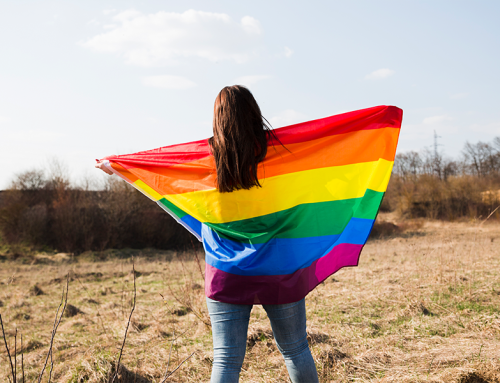Whether we are young, elderly, or somewhere in the middle, loneliness is a feeling that we can all relate to.
But the way we experience it is very personal. It can be a fleeting feeling of distress, or a gnawing sensation, and it can rear its head at different times in our lives. Common triggers are a life event or change in situation, such as a geographic relocation, a relationship break-up, retirement from work or a bereavement. Parents may experience it as a feeling of loss when their children leave home. Sometimes it can be a feeling that comes out of nowhere, like the sudden hush after a big reunion, or when you find yourself alone in the midst of a party or gathering.
Big festivals and celebrations, such as Christmas, Eid or Hannukah, that are associated with social gatherings, can increase the risk of loneliness. It can feel as though everyone but you is sharing special times with friends and family. Many elderly people live alone; if they don’t have children or family living nearby, they may only have contact through FaceTime or phone calls.
Loneliness is not limited to the elderly though. Many young people report feeling lonely, especially those who have left home to study, and particularly overseas students, whose families are abroad.
Social media brings both positives and negatives. Whilst opening new routes to connect with people, it can be tempting to scroll through other people’s photos to see them socialising and having fun with others.
What is loneliness? How do we define it?
Some people report living alone quite contentedly, while other single dwellers feel isolated.
Some are happy with a couple of good-quality relationships and the odd night out, while others seek multiple relationships and a full calendar to fulfil their social needs.
This suggests that loneliness is more about a state of mind than physical situation. In general, it is characterised by a discrepancy between the number and quality of relationships you desire, and those you actually have. It can be defined as “a distressing feeling that accompanies the perception that your social needs are not being met by the quantity, or especially the quality, of your social relationships”. [1]
Loneliness is distinct from social isolation. You can feel lonely in a crowd, just as you can feel contented on your own. Some people feel lonely whilst enjoying a rich social life or living in the company of others. This is because our relationships need to be of high quality to be socially fulfilling. We don’t just seek for others to be present, but we need friends and associates who value us, whom we can trust and communicate with in order to thrive and prosper.
The science behind loneliness
Researchers have suggested that loneliness can be traced back to a primaeval need to protect ourselves from environmental threat. In the same way as birds flock and some animals hunt in packs, in hunter-gatherer times we also moved in groups or tribes for our own security and the safety of our offspring. Therefore, being lonely corresponds with feeling exposed and vulnerable. As our anxieties heighten, we start to feel more unsafe and instinctively seek to reconnect with others. [2]
The same researchers theorise that loneliness is in fact a signal to change our behaviour. Just as hunger is a signal for us to eat, and thirst to drink, so loneliness motivates us to seek out connections to remove ourselves from threat.
This motivation to change our situation sees many people succeed in finding new social groups after a relocation, separation or bereavement. For as many as 15-30% of the UK population, however, loneliness becomes a chronic state. [3] Without intervention, studies have shown that this can have a serious impact, not just on our emotions and cognitive state, but also our physical health and behaviour. [4]
The impact of loneliness
With social isolation making us more alert to environmental threat, it is unsurprising that we begin to build an increasingly cynical perception of the world around us. We start to distrust those we meet, or even those we see on television. We feel self-conscious, inadequate and exposed in social situations. We steel ourselves for rejection, and sadly these new behaviours reduce, rather than increase, our likelihood of being accepted.
For example, if someone turns down an invitation, we convince ourselves that they would rather not spend time in our company, when in fact they are genuinely busy and tied up with their own pressures and problems. Our increasingly pessimistic view of the world can perpetuate a cycle of negativity, reinforcing our feelings of hostility and low self-worth. In time, this can lead to severe anxiety and depression.
How does loneliness affect our health?
Studies have shown that feelings of isolation impact our lifestyle behaviours. As we find it harder to regulate our thoughts and feelings, we begin to lose sight of personal goals. [5]
It can be easy to neglect our self-care and health-promoting behaviours, especially if we are no longer seeking to make a good impression on others. We can find ourselves tempted to eat the wrong things, drink too much alcohol, reduce our physical activity and we may even become wary of going outside.
Loneliness has also been shown to impact our sleep quality, depriving us of its restorative effects. This can lead to a loop of low self-esteem, making us even less likely to put ourselves out in front of others. [6]
How to break out of this cycle
The first step is recognising that you need to.
There are many solutions to help you get back on the road to happiness, but only you can take the positive steps needed to escape its grip.
The considerable research that has been undertaken to understand the origins and impact of loneliness has been used to develop resources and programmes to help those who are feeling its effects.
In Part II of this article we will explore these in detail to suggest ideas and help find the right solutions for you.
References
[1] Hawkley, L.C. and Cacioppo, J.T. (2010) Loneliness Matters: A Theoretical and Empirical Review of Consequences and Mechanisms. Available at: https://doi.org/10.1007/s12160-010-9210-8 (Accessed: January 4, 2023).
[2] Masi, C.M. et al. (2010) “A Meta-Analysis of Interventions to Reduce Loneliness,” National Library of Medicine [Preprint]. Available at: https://doi.org/10.1177/1088868310377394 (Accessed: January 4, 2023).
[2] Cacioppo, J. T., Hawkley, L. C., Ernst, J. M., Burleson, M., Berntson, G. G., Nouriani, B., & Spiegel, D. (2006). Loneliness within a nomological net: An evolutionary perspective. Journal of Research in Personality, 40(6), 1054-1085. https://doi.org/10.1016/j.jrp.2005.11.007
[3] Heinrich, L. M., & Gullone, E. (2006). The clinical significance of loneliness: A literature review. Clinical Psychology Review, 26(6), 695-718. https://doi.org/10.1016/j.cpr.2006.04.002
[4] House, J.S., Landis, K.R. and Umberson, D. (1988) “Social Relationships and Health,” Science, 241(4865), pp. 540–545. Available at: https://doi.org/10.1126/science.3399889.
[5] Tice, D.M. and Bratslavsky, E. (2000) “Giving in to Feel Good: The Place of Emotion Regulation in the Context of General Self-Control,” Psychological Inquiry, 11(3), pp. 149–159. Available at: https://doi.org/10.1207/s15327965pli1103_03.
[6] Cacioppo, J. T., Hawkley, L. C., Berntson, G. G., Ernst, J. M., Gibbs, A. C., Stickgold, R., & Hobson, J. A. (2016). Do Lonely Days Invade the Nights? Potential Social Modulation of Sleep Efficiency. Psychological Science. Available at: https://doi.org/10.1111/1467-9280.00469






Leave A Comment